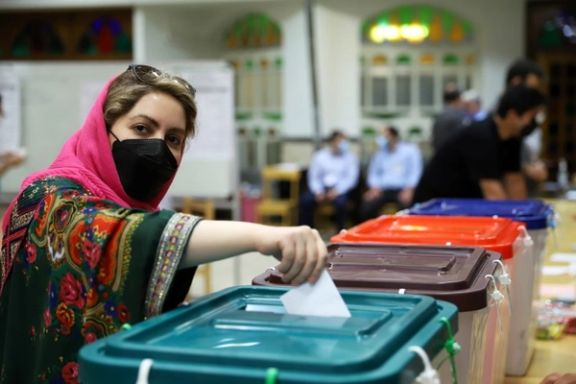Outlook For Turnout In Iran's Parliamentary Elections Extremely Grim

Concerns are growing over extremely low turnout in Iran’s March elections after the government barred many candidates including over a dozen sitting lawmakers.

Concerns are growing over extremely low turnout in Iran’s March elections after the government barred many candidates including over a dozen sitting lawmakers.
Interior Minister Ahmad Vahidi on Wednesday claimed that the government of President Ebrahim Raisi had no role in disqualifying candidates, but contradicting himself he added “except in the case of the sitting lawmakers who have been disqualified”. He insisted that the disqualifications had nothing to do with these lawmakers’ criticism of the government.
Some of the affected candidates have complained that their disqualification was arbitrary and blamed ultra-hardliners who have strong influence in President Ebrahim Raisi’s administration and his interior ministry for “filtering” those who have registered.
Elections during the Islamic Republic have never been democratic for many reasons, but particularly for the fact that only candidates who agree with the principle of a religious state and clerical rule were allowed to run. However, increasingly requirements have become tighter, and only those loyal to hardliners have been able to compete.
The ministry’s executive boards conduct an initial screening -- based on information provided by the ministry of intelligence, the judiciary, police, and the National Organization for Civil Registration -- before major ideological vetting by the Constitutional watchdog, the Guardian Council.
Most reformist parties and groups, as well as many among moderate conservatives, have not shown any interest in the elections given extensive vetting in 2020 elections which excluded them from the parliament and resulted in domination by ultra-hardliners.
The public has also been so indifferent that some regime insiders say turnout may be as low as 15 percent. The parliamentary elections are scheduled for March 1, and despite worsening economic conditions and 50 percent annual inflation, the public does not see a chance of any improvement. They believe that the same elites committed to Supreme Leader Ali Khamenei’s policies will cruise to victory.
In a rare political commentary Tuesday, Nour News, a news website affiliated to the Supreme National Security Council (SNSC), warned about extreme lack of public interest in the elections and the negative role played by a “certain political group”, presumably the ultra-hardliner Paydari Front, to it.
The Paydari Front who have gained huge influence in Raisi’s government are believed to be behind a “political purification plan” that aims to purge all loyalists outside their own group from positions of power.
The Nour News commentary said disqualification of candidates by the interior ministry’s executive boards did not indicate a “flexible and open-minded approach” on their part which can contribute to a drop in voter turnout, while stressing the importance of high participation in boosting the legitimacy of the Islamic Republic.
Any behavior or approach that increases “the rate of real participation of citizens” in the elections will boost the regime’s legitimacy and its national authority while any step taken in the opposite direction will weaken it, Nour News, wrote.
Admitting that there is no marked interest in the upcoming elections yet, Nour News said the supremacy of those who oppose participation in the elections over those who promote high participation is “a worrying fact that cannot be ignored.”
Ultra-hardliners of the Paydari Front blamed former national security chief Ali Shamkhani for not crushing last year’s protests in the bud and even accused him of complicity with former reformist President Mohammad Khatami under whom he served as defense minister between 1997 and 2005.
Voter turnout in the 2020 parliamentary elections officially dropped to 42.57%, the lowest since the first elections held in 1979, only two months after the Islamic Revolution, in which 52.14 percent of those eligible to vote had taken part. Some critics say that even the official turnout numbers are exaggerated, and far fewer people cast ballots.
The Guardian Council disqualified even those reformist candidates who were closer to conservatives than to most other reformists, ensuring that many seats went to ultraconservatives and hardliners without any challenge from reformist rivals.
The highest participation rate was registered in 2001, during the presidency of the reformist Mohammad Khatami, when 67 percent of eligible voters went to the polls. This was one of the rare occasions when the Guardian Council allowed candidates from across the political spectrum to run. Reformists gained an overwhelming majority in the 2001 elections.